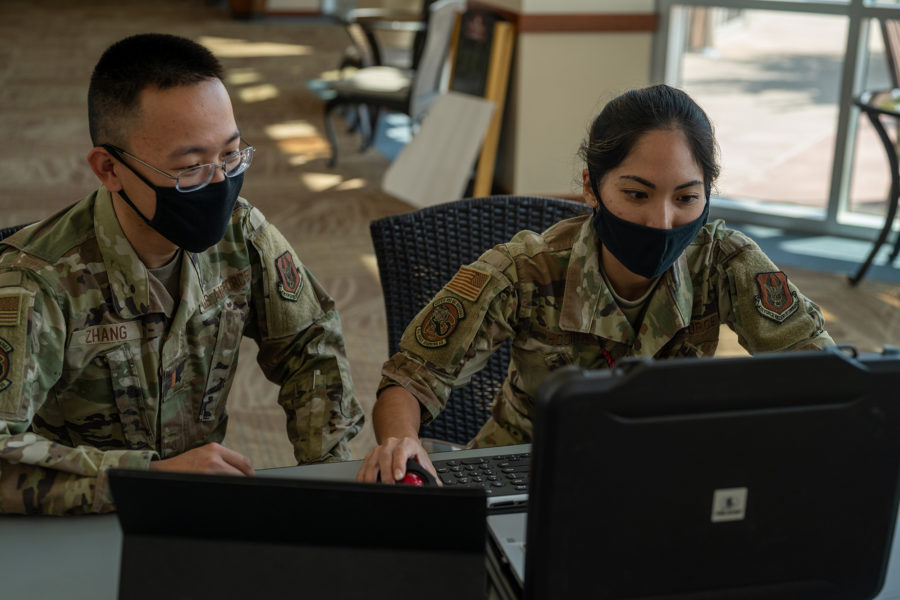Leaders have said they want the Space Force to be the nation’s first “digital service,” unsurprising given that it was founded in an era defined by new technology, coding, and artificial intelligence.
After four years, USSF is still working on implementing that vision, Space Force Chief Technology and Innovation Officer Lisa Costa said at an event hosted by the Mitchell Institute for Aerospace Studies last week. But a key ingredient, part of what Costa called the service’s “secret sauce,” is a small but growing group of Guardians called Supra Coders.
Supra Coders are military or civilian Guardians with a background in coding who went through an extensive training process to become a skilled software developer. But their value goes beyond simply knowing how to write code.
“Supra Coders are critically important to Space Force,” Costa said. “They are not just coders; I can buy coders. They are Guardians first. They have been trained usually in at least one operational area and they’re an expert in that operational area, but many of them have been cross-trained.”
Space Force spokesperson Maj. Tanya Downsworth added that Supra Coders are a secondary or tertiary work role for Guardians whose primary positional description is not software development.
Because Supra Coders have space-specific experience, they have a deeper understanding of the Space Force’s software needs and can more quickly make changes to systems as needed.
“They are able to put hands on and make changes with other operators in a multidisciplinary team and make changes in real-time,” Costa said, calling such an ability crucial to the vision of a digital service.
Making quick changes is also especially important given that Space Force officials have described cybersecurity as the “soft underbelly” of space operations, and global cyber attacks continue to increased, including targets on government and defense agencies. On top of that, the world’s space-faring nations plan to manage vast volumes of data through the development of software solutions.
Supra Coders’ current duties include web and mobile application development, on top of each unit’s specific challenges, Downsworth said.
“Oftentimes we’re able to pull together some Supra Coders to work on critical capabilities,” Costa added.
Since 2021, the program has produced 195 Supra Coders. There are currently 10 members in training with an estimated completion date of March 2024, according to Downsworth. Producing a Supra Coder takes time, acknowledged Costa.
“This really is a commitment by them and their commander,” Costa said. “Because you do not build a Supra Coder overnight. You send them to three months of immersive coding school, and then you send them to a three-month internship.”
On top of that, they have to maintain their proficiency through ongoing training.
While Supra Coders are on the front lines of the digital service transformation, Costa also pointed toward other changes in the works.
In particular, she highlighted the significant “tech debt” facing the Space Force—outdated technology and IT infrastructure it inherited that holds it back from being able to fully embracing cutting-edge technologies. Costa has previously suggested the service may not try to upgrade its existing systems and will instead “just leap over that” and start new.
Taken together, such infrastructure improvements and Supra Coders represent a two-pronged approach.
“Fundamentally, we’re looking at fixing the foundation, and then we are also upskilling our Guardians, creating Supra Coders … and then allowing that combination of modernization of the foundation with the real-time changes to capabilities by Supra Coders, that’s a huge game-changer,” said Costa.

